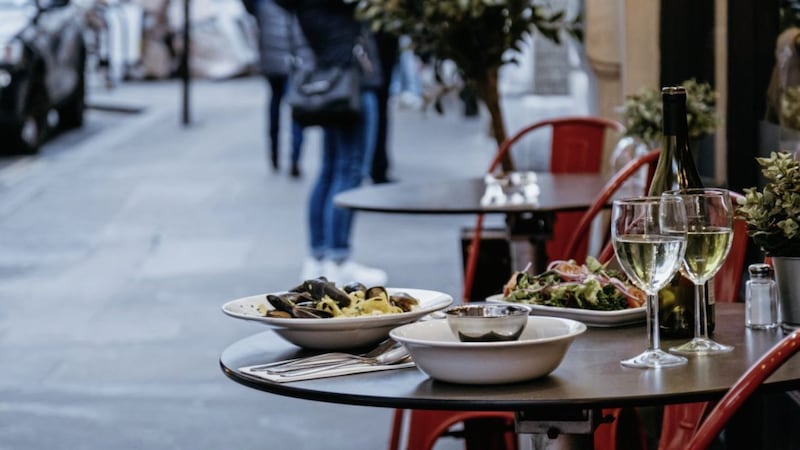THERE is huge anticipation in the hospitality industry and general public ahead of hotels, cafes, restaurants and bars that serve food re-opening next week.
As part of their preparation, business owners are considering how best to trade in a way which is viable while sticking to social distancing rules and providing a safe environment for customers.
Many are looking at bringing at least part of their business outside over the coming months, with the vision of a European style, pavement café and bar culture made more plausible by the run of fantastic weather Northern Ireland has enjoyed during lockdown.
The good news is that licensing legislation exists to help the vision become reality. The Licensing of Pavement Cafés Act (Northern Ireland) 2014 regulates the placing of furniture on public areas for consuming food or drink, which may include alcohol. The provisions of the Act apply to all cafés, bars, hotels, guest houses and restaurants.
In essence, a pavement café licence allows the licence holder to place temporary tables, chairs, umbrellas, barriers and heaters in a public area in the open air to which the public has access as of right and which isn’t in a market area.
Under the Act the authority to grant a licence rests with the council which covers the area in which the premises are located. A number of Councils have actively embraced the licensing of pavements and have a protocol and application procedure in place. An important procedural requirement for applicants is advertisement of the notice of application on their premises to notify the public.
Under Section 4 of the Act a Council must grant a Pavement Café Licence application unless it considers the area isn’t suitable for food and drink consumption, that serving food and drink there will interfere with the movement of people or vehicles, that the applicant has made a false statement in their application or that the applicant has previously had a licence revoked.
Before deciding an application for a Pavement Café Licence the Council must consult with the Department for Infrastructure on roads and traffic and it must also consult the district commander for the police district in which the premises are situated, although in the case of a bar the requirement to consult the District Commander is mandatory.
Although navigating the process to get a licence is straightforward there are certain conditions which may be added at the discretion of the council. For example, a condition may be included requiring the licence holder not to permit alcohol consumption in the area covered by the licence if the council believe to do so would result in disorder.
The council may also impose limitations around the amount of furniture on the area covered by the licence or limit the days or times when it can be used. It could also make the licence conditional on proof of adequate arrangements for storing tables and chairs when not in use.
It is important for those who hold a liquor licence to be aware that when applying for a pavement café licence they are required to ensure that the court licensing register relating to their liquor licence is updated to record the grant of a pavement café licence.
Applicants would also do well to check their insurance cover and update it to create additional cover for the outside area. They should also consider the possible requirement for planning approval. Given our climate, some traders may want to attach an awning or retractable roof cover to their premises but in doing so they could trigger an application for planning permission.
When the Licensing of Pavement Cafes Act was set down in 2014 the rationale behind it may have been to help the hospitality trade create European style town and cityscapes and a more appealing lifestyle.
Whatever the intention, there can be little doubt it offers invaluable assistance across the hospitality industry as a legal means of using open spaces for re-opening and recovery.
Cathy Colton is a partner at Carson McDowell



